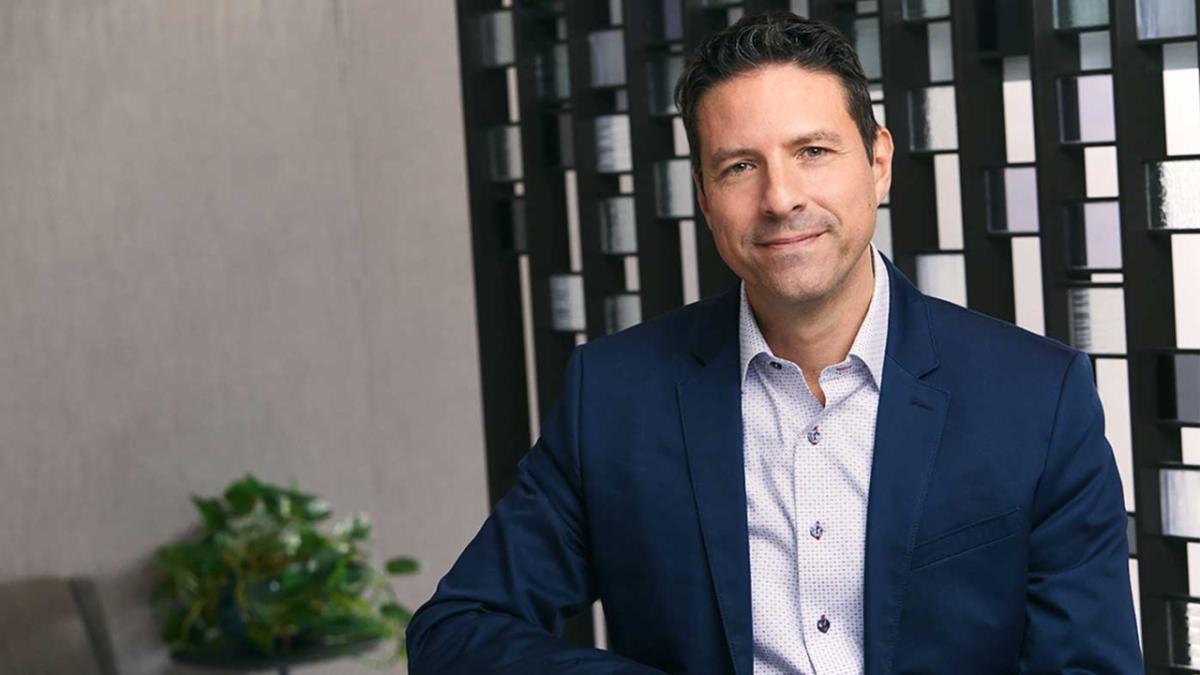Using the Power of Technology To Better Serve Our Patients

Originally published on Bristol Myers Squibb News & Perspectives
By Greg Meyers
At Bristol Myers Squibb, Global Patient Week stands as a pinnacle of our year-round vision to transform patients’ lives through science, bringing together our more than 32,000 employees around the world to celebrate the individuals we work each day to serve. This year, in partnership with the patient advocacy groups we partner with, we asked a few of our Leadership Team members to share their perspectives on how the work their teams are leading impacts lives around the world.
To predict the future of how doctors will deliver better care to patients, just do the math. The length of the average primary care doctor visit, according to the National Library of Medicine, is 17.4 minutes. The patient talks for 5.3 minutes and the doctor talks for 5.2 minutes. Much of the remaining six minutes is spent putting information into a computer. Is that six minutes time well spent? More and more, the answer is yes.
An experienced physician will give patients insights and advice based on, at most, 30 years of practice. But a computer can be trained to review the records of 10,000 patients in 10 seconds. Having that much more experience in finding patterns of symptoms and outcomes in treatment will put more healing power than ever in doctors’ hands.
That’s just one example of the power of data in serving patients better. Here’s another: expert human dermatologists can distinguish benign from malignant skin growths seven times more accurately than a family physician. Computers trained on millions of skin growths can approximate a dermatologist’s skills. Think of people all over the world who have no access to a dermatologist, much less a family physician. Soon they’ll be able to access a dermatologist’s know-how remotely thanks to the power of data and digital technology.
I believe this sort of data-based “computational medicine” will swiftly improve healthcare for patients so we can add yet another 20 years to global life expectancy, as medicine has since 1960.
Building a stronger company
Doing this kind of math is my job at Bristol Myers Squibb. As Executive Vice President and Chief Digital and Technology Officer, I’m responsible for digital transformation and technology inside and outside the company. My job is to put technology at the service of our talented professionals to run the company’s activities more effectively, from research and development to manufacturing and the supply chain. I’m charged with using technology so we can be more productive, inventive, swifter, and above all, meet our prime mission of supporting patients.
This digital transformation of healthcare will make doctors smarter, and patients healthier. It will also make finding the right medicines more likely. Let’s do the math again: There are 4 trillion cells in the human body, and each cell has 1 trillion molecules in it. That’s 7 octillion atoms in the body. Any one of those atoms out of place could cause, cure or prevent disease. When researchers are looking for medicines, that’s far too many places for humans to investigate. And human researchers can only do about three experiments a day when looking for medicines. But artificial intelligence (AI) and machine learning (ML) can do a billion experiments per day, seven days a week. It stands to reason that breakthroughs will occur more often when digital technology augments human capabilities.
Notice I said “augment” instead of “replace.” Face time with doctors will always be important, but so will connectivity for people who can’t access doctors where they live. A doctor’s experience and instincts won’t disappear, but the conclusions doctors draw will be informed by the wisdom of “digital doctors” who’ve studied and learned from millions of patients and billions of tests and experiments.
Rediscovering my purpose
It's inevitable: Thanks to technology, we are going to see true breakthroughs in finding powerful medicines, and in treating, diagnosing and, hopefully, curing diseases. One example from the present, not the future: the swift development of COVID-19 vaccines using mRNA technology. The unprecedented speed in innovation and the enormous promise of digital technology in patient care we saw in 2020 helped lead me to join the Bristol Myers Squibb this January. Everyone craves a purpose in life, and the pandemic made it clear my purpose truly is making life better for patients.
Over the past 15 years, the attitude toward digital healthcare’s potential in the pharmaceutical industry has shifted from skepticism to enthusiasm. Where once I felt like an evangelist trying to convince colleagues that the future is digital, today I believe we are all pulling in the same direction, and looking to digital technologies as the fastest, surest way to help us make patients’ lives better.
The breakthroughs I’ve described above are close at hand, but we’re just getting started, both in the search for powerful medicines and the application of digital technology to strengthen doctors’ ability to deliver the best healthcare in the world, anywhere. These are big dreams, but I believe we can make them come true. We’re just in the top of the second inning.

